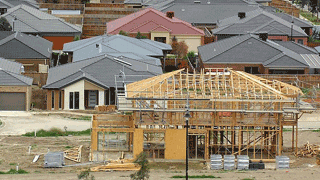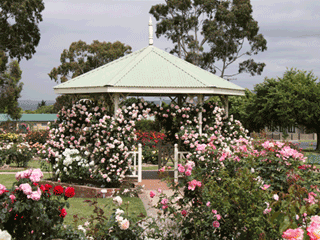Quote of the Week
“We expect sales volumes to recover from 2021, when we broadly forecast prices to stabilise, although Australia could have a larger home price rebound.”
Fitch Ratings
Housing Sentiment Rises: Survey
 Home buyers became more optimistic about the property market in June, after Covid-19 restrictions began to ease, according to the ME Quarterly Property Sentiment Report.
Home buyers became more optimistic about the property market in June, after Covid-19 restrictions began to ease, according to the ME Quarterly Property Sentiment Report.
Sentiment rose by 6 percentage points to 35%, though this was still below the high of 39% recorded in the first three months of 2020.
Consumers were also less concerned about how Covid-19 would affect property values with the rating falling 9 percentage points to 55%. Those expecting house prices to fall in the next 12 months dropped by 10 percentage points to 31%.
Encouragingly, first home buyers are emboldened, with 51% planning to buy in the next 12 months – up 9 percentage points from the previous quarter.
ME general manager for home loans Andrew Bartolo says sentiment started to turn around as soon as restrictions were lifted across most states and territories.
“The rebound in confidence is a natural reaction to improving COVID-19 case numbers when we conducted the survey,” Bartolo says.
Vacancy Rates Fall Nationally
 The national vacancy rate has fallen to 2.2% in June, down from 2.3% a year ago, according to SQM Research. This was shored up by a 0.3% fall in the month between May and June this year.
The national vacancy rate has fallen to 2.2% in June, down from 2.3% a year ago, according to SQM Research. This was shored up by a 0.3% fall in the month between May and June this year.
All capital cities recorded declines in vacancy rates in June, with good results noted in Perth and Darwin. Perth’s vacancy rate has been on a steady downward trajectory all year, falling from 3.2% in June 2019 to 1.5% in June 2020.
The pattern in Darwin is similar, the vacancy rates dropping from 3.1% to 1.8% over the same time period.
Vacancies in Sydney fell from 4.0% in May to 3.8% in June, though they remain higher than their level in June 2019 when they were 3.5%. Sydney is now the only capital city with a vacancy rate above 3%, while five cities have vacancy rates below 1.5%.
The fall in Melbourne was minimal – only 0.1% over the month with the June 2020 rate of 3.0% higher than the rate of 2.0% a year ago.
Vacancies in Brisbane, Adelaide and Canberra all recorded small improvements.
JobKeeper Extension will Benefit Property
 The Property Investment Professionals of Australia (PIPA) and Master Builders Australia, both key players in the property and construction landscapes, have praised the Federal Government for extending the JobKeeper packages.
The Property Investment Professionals of Australia (PIPA) and Master Builders Australia, both key players in the property and construction landscapes, have praised the Federal Government for extending the JobKeeper packages.
The Federal Government has announced that the JobKeeper program will be extended until the end of March next year, but with reduced fortnightly payments and stricter eligibility criteria.
PIPA Chairman Peter Koulizos likens the impact of the coronavirus to the GFC of a decade ago and says because similar initiatives were applied during the GFC, Australia avoided a recession by keeping people employed.
“The extension, as well as the continuance of mortgage repayment pauses, will benefit homeowners, landlords and tenants who continue to need financial support over coming months,” he says.
Denita Wawn, CEO of Master Builders Australia agrees, saying: There’s no doubt that JobKeeper continues to be lifeline for thousands of small builders and tradies as well as many in the building supply chain. The continuing easier accessibility for sole traders to access the scheme is also important”.
First-Home Buyers Look to Regions
 First-home buyers are aiming to get into the housing market by moving out of the capital cities and into regional areas where properties are cheaper.
First-home buyers are aiming to get into the housing market by moving out of the capital cities and into regional areas where properties are cheaper.
According to the latest ME Quarterly Property Sentiment Report, 82% of first-home buyers says they hope to find bargain properties in the wake of the Covid-19 pandemic.
Many are finding it easier to save with 40% of FHBs saving for a deposit compared to 21% in the previous survey.
Around half (51%) of FHBs says they plan to buy in the next 12 months – the highest of any group in the survey while 60% say they would consider buying in a regional area to save money and to have a better lifestyle.
This compares with 45% of respondents overall.
ME general manager home loans, Andrew Bartolo, says the introduction of remote and more flexible working arrangements has influenced people’s thinking about where they can live.
The survey also shows that low interest rates are having a positive influence.
Home-buying Intentions Revive
 Home-buying intentions spiked in June as pandemic restrictions eased, returning close to the levels seen in March before the full impacts of Covid-19 were felt.
Home-buying intentions spiked in June as pandemic restrictions eased, returning close to the levels seen in March before the full impacts of Covid-19 were felt.
The Commonwealth Bank’s latest household spending intentions index showed a 6% rise in home-buying intentions over the month, after dropping in the early part of virus restrictions.
The index had risen to near record levels in March, before home-buying intentions tumbled in April as the economic shutdown restrictions dramatically affected home-buying activity.
CBA’s chief economist Stephen Halmarick says the recovery in June was fuelled by the partial reopening of the Australian economy.
“We saw a large rise in new mortgage applications at CBA as people look to take advantage of the record low interest rates,” Halmarick says.
“While the more recent increase in Covid-19 cases in Victoria and the subsequent reintroduction of lockdown measures is a concern, the data for June shows solid recovery in spending intentions for home buying.”




